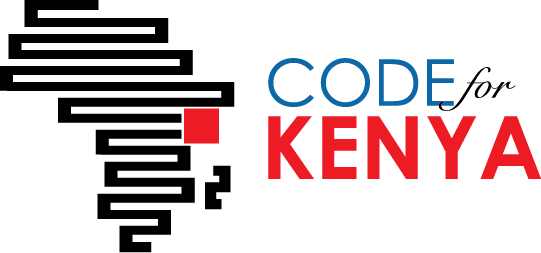CODE FOR KENYA
Giving Citizens Actionable InformationWe use civic technologies and open data to build digital democracies that afford citizens timely and unfettered access to actionable information that empowers them to make informed decisions and that strengthens civic engagement for improved public governance and accountability.
In a nutshell, we use technology to boost active citizenry and evidence-based public discourse.
Code for Kenya is non-partisan and does not support or oppose any political party or candidate. We do not undertake any advocacy work either for ourselves or on behalf of others.
We remain impartial in the work that we do. As far as our content is concerned, we do not endorse or support any political parties. We also do not undertake any advocacy work either for ourselves as an organization or on behalf of others.
Code for Kenya’s purpose is to promote active and engaged citizenship through promoting access to information that citizens can then use to engage their leaders and hold their governments accountable.
NO COWBOYS
We don’t try do all this on our own. Building digital democracies is simply too big a task for any one organisation. Code for Kenya is therefore designed as a catalyst, that kickstarts new initiatives and strengthens the local ecosystem by investing into and working through partners.
We are also a conduit for resources and knowledge from the rest of the world, into Kenya, through our membership of the continental Code for Africa federation, which is Africa’s largest network of civic technology laboratories and open data activists. This means we are able to give Kenyans access to pan-African funding, transfrontier partnerships, and international leverage.
GUIDING PRINCIPLES
Code for Kenya shares a covenant with the rest of the Code for Africa federation, based on the following guiding principles:
- We show what’s possible. Digital democracy can be expensive. We seek to be a catalyst by lowering the political risk of experimentation by creating successful proofs-of-concept for liberating civic data, for building enabling technologies and for pioneering sustainable revenue models. We also seeks to lower the financial costs for technology experimentation by creating and managing ‘shared’ backbone civic technology and by availing resources for rapid innovation.
- We empower citizens. Empowering citizens is central to our theory of change. Strong democracies rely on engaged citizens who have actionable information and easy-to-use channels for making their will known. We therefore works primarily with citizen organisations and civic watchdogs, including the media. We also support government and social enterprises to develop their capacity to meaningfully respond to citizens and to effectively collaborate with citizens.
- We are action orientated. African societies are asymmetric. The balance of power rests with governments and corporate institutions, at the expense of citizens. Citizens are treated as passive recipients of consultation or services. We seeks to change this by focusing on actionable data and action-orientated tools that give ‘agency’ to citizens.
- We operate in public. We promote openness in our work and in the work of our partners. All of our digital tools are open source and all our information is open data. We actively encourage documentation, sharing, collaboration, and reuse of both our own tools, programmes, and processes, as well as those of partners.
- We help build ecosystems. We actively marshal resources to support the growth of a pan-African ecosystem of civic technologists. Whenever possible we reuse existing tools, standards and platforms, encouraging integration and extension. We operate as a pan-African federation of organisations who are active members of a global community, leveraging each other’s knowledge and resources, because all of our work is better if we are all connected.
FELLOWS
Our Change Agents

Nuzulack Dausen
Innovation Fellow Mwananchi Communication’s new Data Editor designate, tasked with setting up the media group’s new data journalism unit with assistance from Code for Tanzania. Dausen was previously Chief Reporter at Mwananchi newspaper, where he has covered issues ranging from the US elections, Tanzanian healthcare and the 2015 campaign for the Tanzanian presidency.

Kizito Makoye
Innovation Fellow Jamii Forum’s new Data Editor designate, tasked with setting up a digital first newsroom for Tanzania’s largest online audience for news and actuality content. Makoye boasts 10 years experience as a journalist, and has written for publications including the German broadcaster Deutsche Welle, Thomson Reuters Foundation and the Norwegian newspaper Bistandsaktuelt.
PAN AFRICAN EXPERTISE
Code for Kenya is Supported by A Network Of International Experts

Justin Arenstein
Code for Africa Director

Catherine Gicheru
Country Lead

David Lemayian
Code for Africa Chief Technologist

Chris Roper
Code for Africa Deputy Director

Ashlin Simpson
innovateAFRICA Programme Manager

Amanda Strydom
African Network of Centers for Investigative Reporting (ANCIR) Programme Manager
